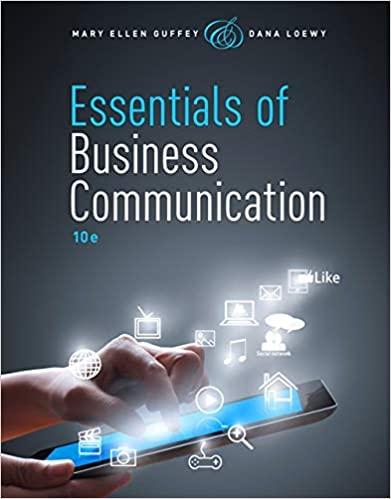Question
Identify and describe Systems Theory Frameworkto support your understanding of the client (i.e., your case conceptualization ). Include a brief description of the key components/assumptions
Identify and describe Systems Theory Frameworkto support your understanding of the "client" (i.e., yourcase conceptualization). Include a brief description of the key components/assumptions of Systems Theory Framework and exploration of how you'd apply this to the "client." .
Client background history:
The client is a highly accomplished individual with a diverse educational background and a strong commitment to research and community engagement. She holds a BA in Psychology from the University of British Columbia, a BA Honors in Psychology with a Minor in Neuroscience from the University of Guelph, and has completed various certifications, including the Google Data Analytics Professional Certificate. Her academic journey spans international experiences, including studies in Jakarta, Indonesia.
In terms of her career concerns, the client is actively engaged in research, with a focus on social and emotional cognition, memory and cognition, and social identity. Her current role as a Directed Studies Student at the Social and Emotion Cognition Lab at the University of British Columbia involves co-investigation of the Ride-Share study, where she contributes to various aspects of the project, including literature review, survey scale finalization, data organization, and reporting. Additionally, she has served as a research intern at RWTH Aachen University, conducting independent research on task interruptions and human performance.
The client's commitment to cultural competence in career counseling is evident in her role as the BIPOC Research Coordinator at the Arts Undergraduate Society at the University of British Columbia. In this position, she works towards amplifying voices and cultivating an equitable community within the Arts community, emphasizing the importance of understanding deep-rooted issues and relying on valid information.
Her involvement in various research roles, such as the Social Identity Lab and Memory and Cognition Lab at the University of British Columbia, showcases her dedication to understanding human behavior and cognition. As a confederate in the Social and Emotion Cognition Lab, she actively participates in research experiments to track real-time changes in verbal and nonverbal communication.
Beyond her research endeavors, the client has demonstrated teaching and tutoring skills as a Tutor at Tutorax Inc in Boisbriand, Canada. She is committed to analyzing individual learning styles, creating customized lesson plans, and establishing key relationships between students and parents for effective communication.
Her professional experiences also extend to marketing roles, including an internship at PT. Astra International Tbk- Peugeot Head Office in Jakarta, Indonesia, where she managed accounts, files, and databases. As a Marketing Volunteer at Universal Services in Jakarta, she collaborated with other divisions to create engaging and promotional content.
Reference:
The Systems Theory Framework of Career Development (McMahon & Patton, 2019) describes career development through three inter-connected systems:
- Individual systems include intrapersonal influences of constructs such as age, ability, personality, gender, sexual orientation
- Social systems include the influence of groups such as family, friends, peers, media, and workplaces
- Environmental-societal systems include more broad influences of factors such as socioeconomic circumstances, geographic location, political/historical influences, and globalization forces
These can be defined as the "process influences."
Similar to constructivist models, stories are key to understanding individuals' career issues within this context as they reveal the dynamic, and sometimes unpredictable, interactions between influences. The SFT describes this interaction as "recursiveness." Stories also help to illustrate concepts such as "change over time" and "chance."
Ultimately, STF focuses on depicting career development as a dynamic and complex interplay of influences.
Step by Step Solution
There are 3 Steps involved in it
Step: 1

Get Instant Access with AI-Powered Solutions
See step-by-step solutions with expert insights and AI powered tools for academic success
Step: 2

Step: 3

Ace Your Homework with AI
Get the answers you need in no time with our AI-driven, step-by-step assistance
Get Started



